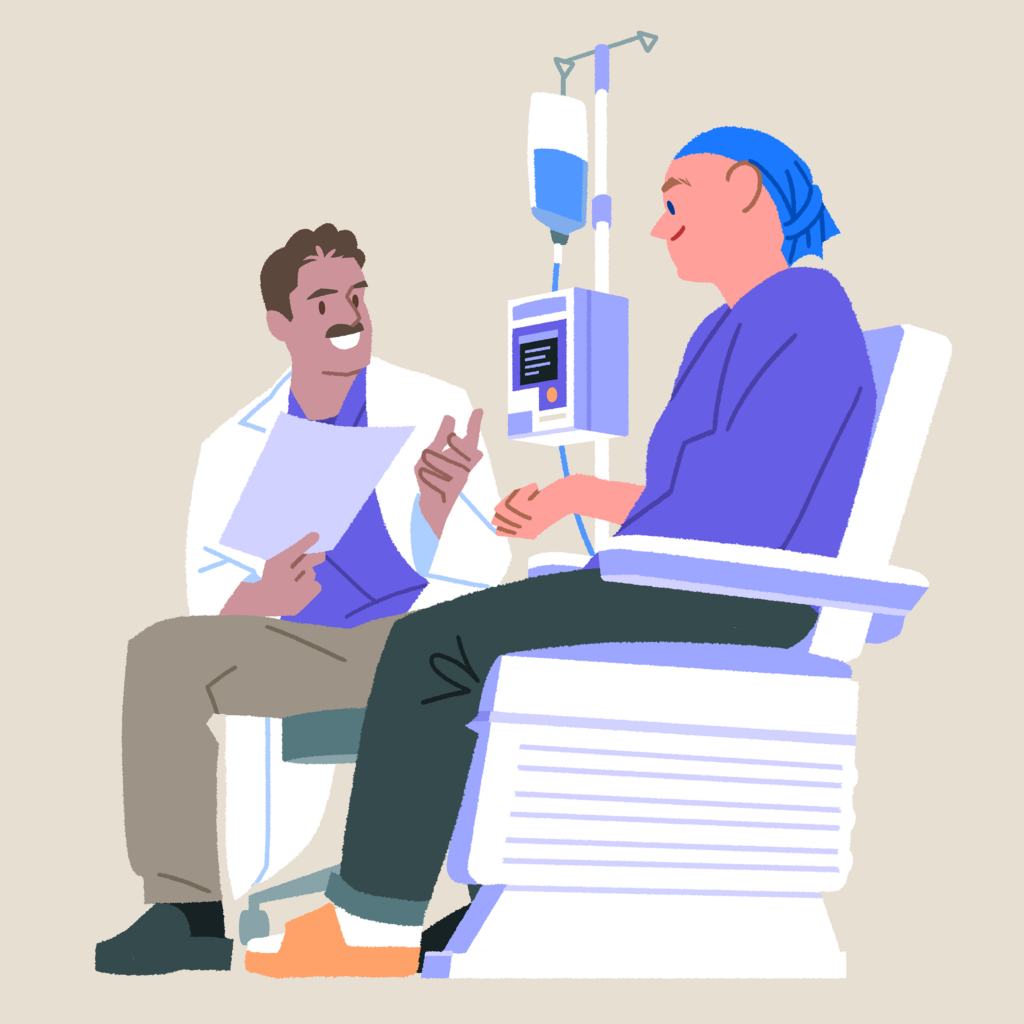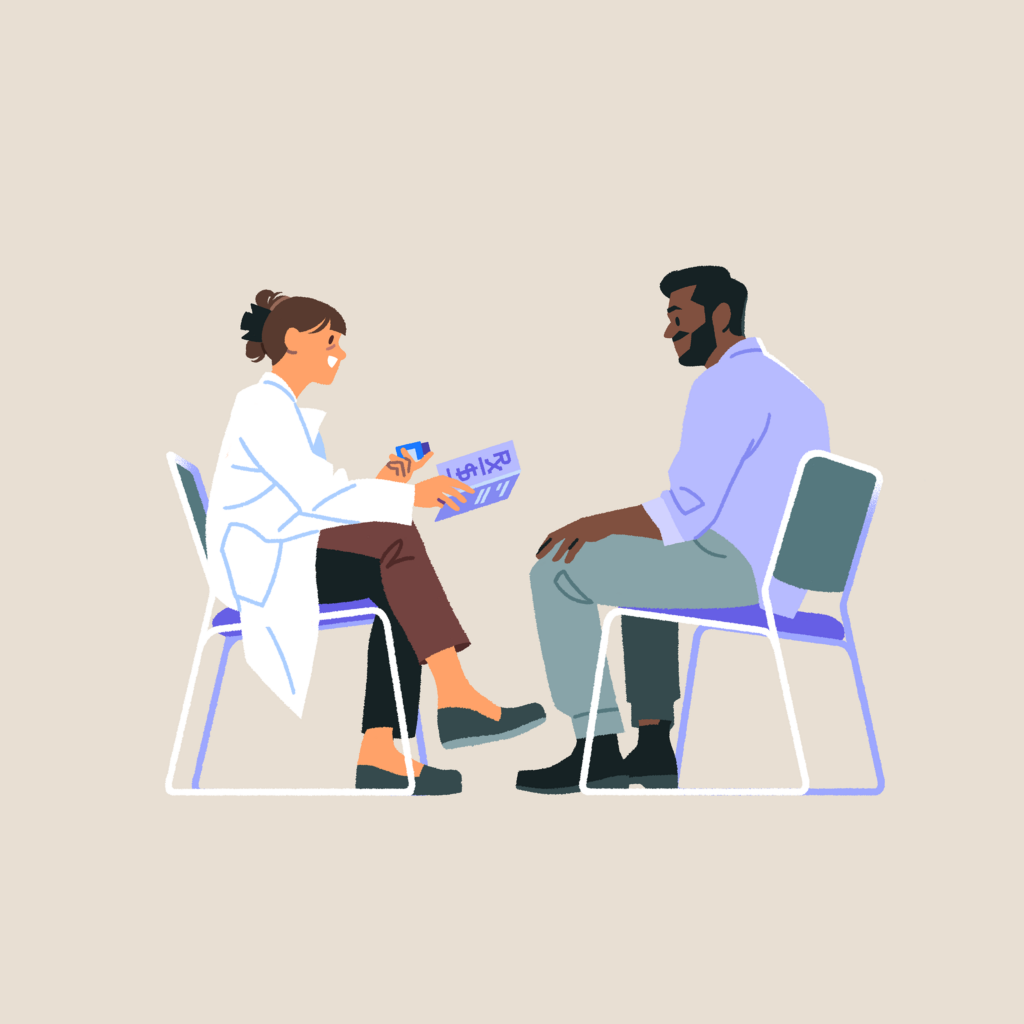Questions for your Hospital and Health-System Pharmacist

Nearly every hospital, health system, clinic, and community pharmacy has pharmacists on staff.
Whether in the hospital, clinic or community pharmacy, your health-system pharmacist is an experienced resource on your care team. They are the medication specialists, so they can help you understand your treatment plan and answer questions about your medications.
These are the types of questions your health-system pharmacists can answer:
Want to learn more about what a Health-system pharmacist does for patients?



